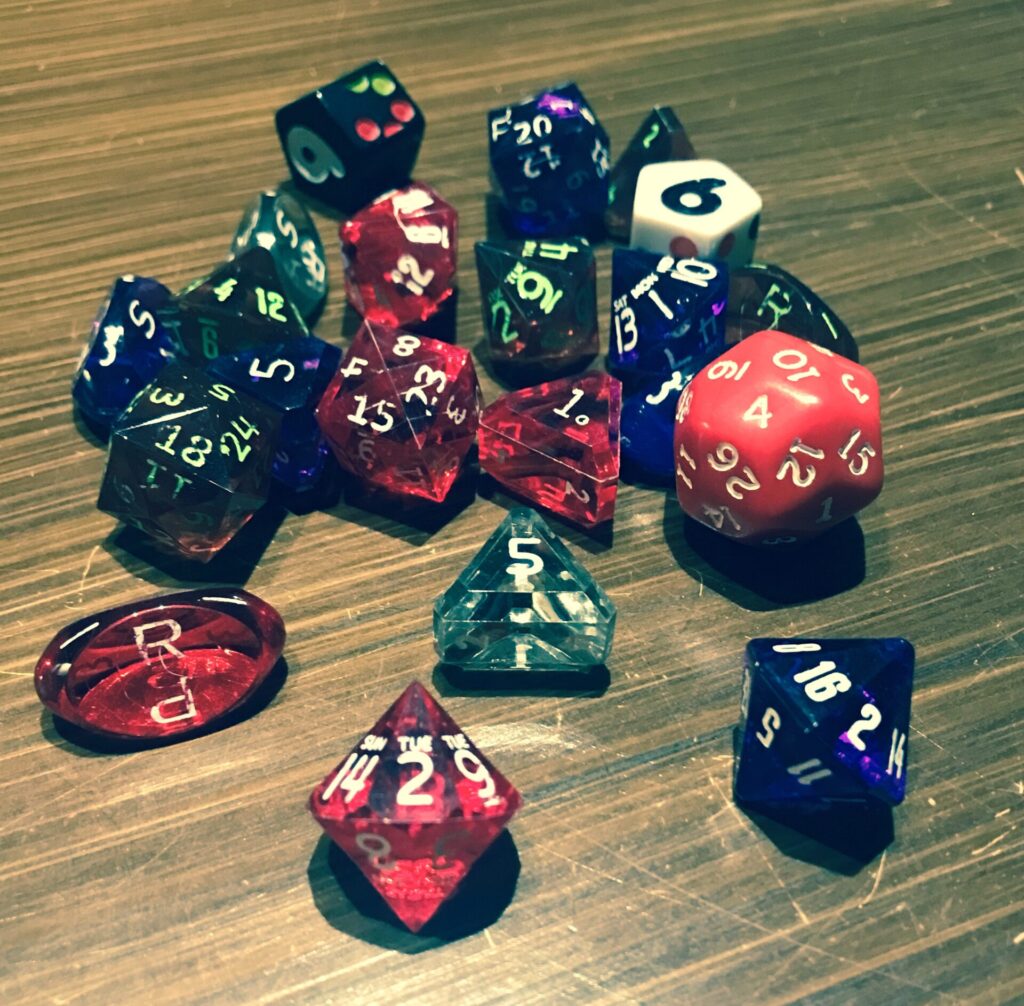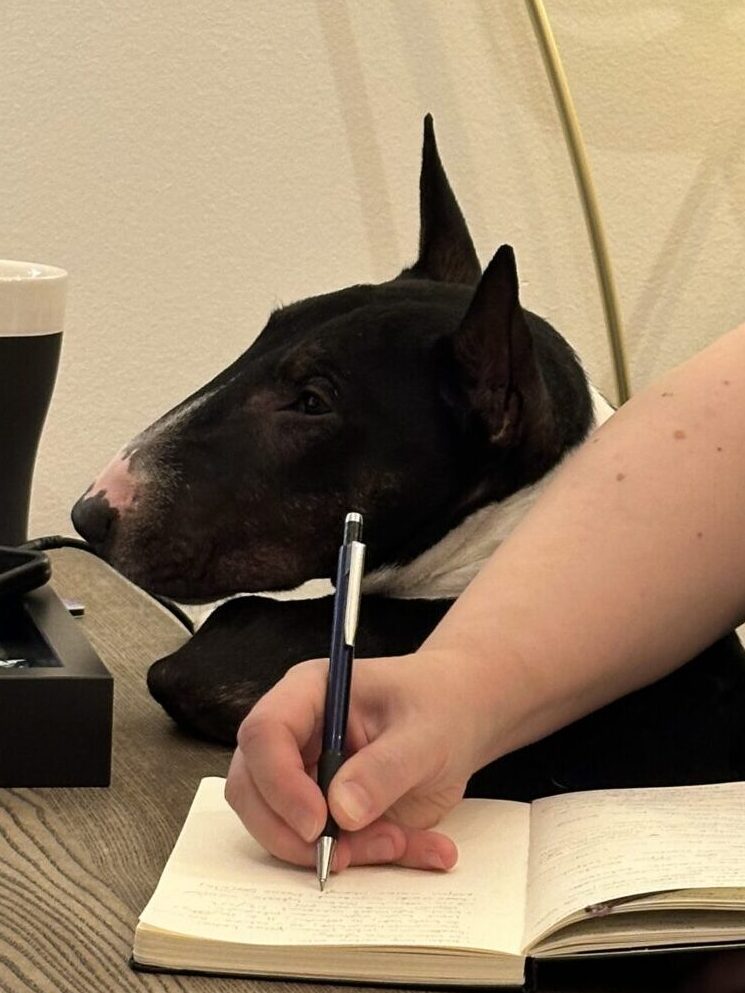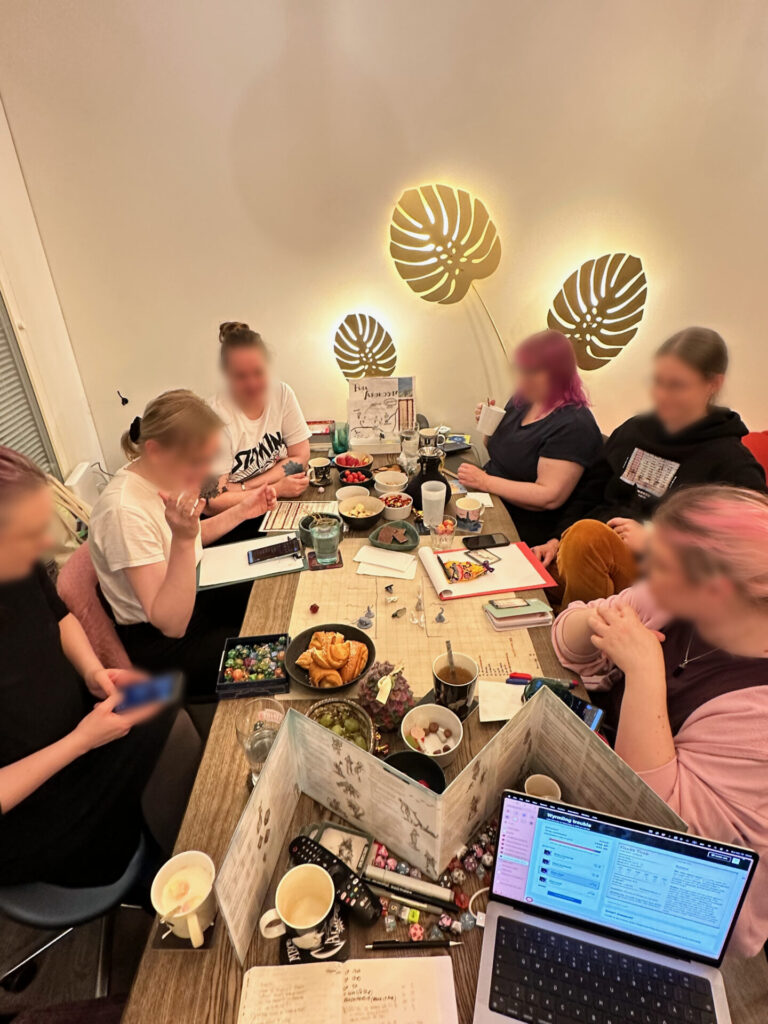I am forty five years old. I’ve been playing tabletop roleplaying games for thirty five years. I am middle aged, and increasingly aware of my limited time on Earth. I wonder what is the point in most things I do. I am ridiculously into Taylor Swift, despite not being a young woman in dramatic heart ache (Love Story, Haunted, Long Live forever, despite a lifetime of being an uncommercial goth and metal head). I play videogames that in no way improve my life – what is the point of spending hundreds of hours of very real time in an MMO to build a tiny pretend footprint in an imaginary world? I recently took on a loan that will be a million Euros by the time I pay it back to have the tiniest little yard for my dog that will be with me, in the best case, for a decade – and I’ll be paying the mortgage for another two decades. I create and play music with my band every week, not knowing if we’ll ever get to perform again, even if that is the goal.
When buying the home with the thirty year mortgage last Christmas, we talked about how well it would work for entertaining four to six people over a roleplaying game.

I spend from a few to a dozen-plus hours to sit down at a table with two to five friends for four to six hours, talking about a make believe world that nobody outside of that circle will ever know. Very little of this time persists.
I hold on to all of my notes, and sometimes I go back to think about the game, and the people who were there.
It’s about the people
When I revisit game notes, I can rarely recall the actual events of the game. They don’t really matter to me. What matters is what I first write down: the date, the game, and who was there with me.
Playing a roleplaying game is a very intimate proposition. That makes it scary: you are not normally this vulnerable with people outside of your family unit, if that. When you do it properly, and yes I will be elitist and gatekeepery here – I’m talking about when you’re playing with me, at my table – you’re very bare. Not quite as bare as when singing your own songs on a stage as the audience is smaller, but really, that only makes it more intimate, doesn’t it?
One of my players did a monologue on a stage at a convention last year, performing as her character in one of our games, talking about the emotional journey she was on, in the game. I have never been as proud. I was moved to tears.

The magic circle
The table at which you sit is a magic circle. When play begins, you’re weaving a shared fantasy, and when play ends, you return to the physical world with but memories of what you experienced together. The only “problem player” I dread is the one that refuses or resists the fantasy. You need to accept it to play at my table.
And when you do? When the fantasy becomes a shared language, a shared spell, a shared secret? It is magical in every sense. The game’s content doesn’t matter. It’s an intimate thing.
You get very close to everyone else at the table.
You feel like you’ve always known them. You move right past true names and hugs. We craft a fantasy together, so we talk about things that matter. You talk about “what I believe in my heart to be worthy of love”, you talk about “what is shameful to me”, you talk about “what excites me”, you talk about “what is important in life”. You talk about “what has hurt me” and you talk about “what I wish I did about it”.
You don’t think you’re discussing any of that – most of you don’t, most of the time you don’t realize you are. We are not playing to save ourselves a therapy session cost, yet what’s happening at the table is a form of therapy.

But the characters you choose to play? Most of us play out our traumas, and it’s not very obfuscated – once we know each other, it’s not very subtle, is it? New, adult players – not kids, like so many of us were when we first started talking about our fantasy – typically immediately get what’s going on, and they double down on their traumas, and they’re able to put words to it, and it’s wonderful.
So many of us can’t, or won’t, but we still play our trauma born characters, no matter the in-game context those characters exist in. Most of us (I haven’t encountered a single exception to this, across a hundred or so players) play versions of the same character – the same hurt, the same shame, the same uncertainty, the same fear, the same hope, the same ideal – over and over again, and it’s us needing to connect with other humans, bared and honest. In a way we really can’t, in our day to day contexts.
It doesn’t matter what the game’s subject matter is. Even if you’re all Space Marines, or waiting for the right moment to go insane in a Call of Cthulhu game, or planning the perfect day trip in Ryuutama, you will still be playing with the basic building blocks of you, and creating another variation of your true self.
And that is why I still play roleplaying games at forty five. There is nothing like it. I get to talk about things that matter, if via multiple layers of comfortable obfuscation, with people I hold very dear. I get to explore who I am. I get to help others on their exploration.
After a good session, I feel like I’m a better human. After a bad session, where I’ve stumbled in some way as a game master, I feel bad for weeks, as I’ve been allowed into something private and vulnerable, and I’ve abused it, or at the very least not acted in the way my friends, baring themselves, wanted me to. It doesn’t matter if the game’s subject matter was intimate or not – what happens at the table is intimate.
Playing with new people is the biggest high in my adult life. The amount of vulnerability and trust it takes isn’t really something you see anywhere else in adult lives.
Roleplaying games have real value, something I am eager to and proud to spend my dwindling hours on this planet on, but that value is in what happens between the people playing, in the magic circle, not the artifacts themselves, or indeed in the transcript of what transpired in the fiction. It is the circle itself, what is happening to the people playing, what they’re choosing to engage in, that is magical.
Leave a Reply